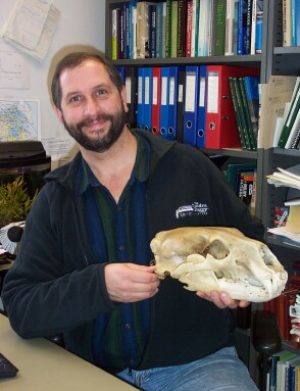Innovation Anthology #103: WHEC Project Coordinator

Imagine a North Pole without ice and without polar bears. That’s a scenario that could very well become a reality and much sooner than you might think.
University of Alberta biologist Dr. Andrew Derocher is a world renowned expert on polar bears.
His observations in both the Norwegian and the Canadian Arctic over the last 20 years indicate global warming is already putting polar bears at risk. The western Hudson Bay population has decreased by 22 percent and the Beaufort Sea bears are showing declines in body condition and loss of cubs.
DR. ANDREW DEROCHER: Most recently this past year, we’ve been using satellite telemetry to follow individuals in that population. And we know that 2007 was a major change in the sea ice conditions in the Beaufort Sea with a major retraction northward in summer to levels that we’ve never seen before. And the bears were definitely having a hard time staying in contact with the sea ice. And some of our bears have actually gone from the Canadian side of the Beaufort Sea right across Alaska and are now actually in Russian territory.
Having traveled hundreds of kilometers beyond their normal range to find food, Dr. Derocher wonders if these polar bears will even come back to Canada.
FOR INNOVATION ANTHOLOGY, I’M CHERYL CROUCHER
Guest
Holger Bohm,
Dept of Biological Sciences, University of Alberta, Edmonton, Alberta, Canada,
Sponsor
Program Date: 2008-01-29